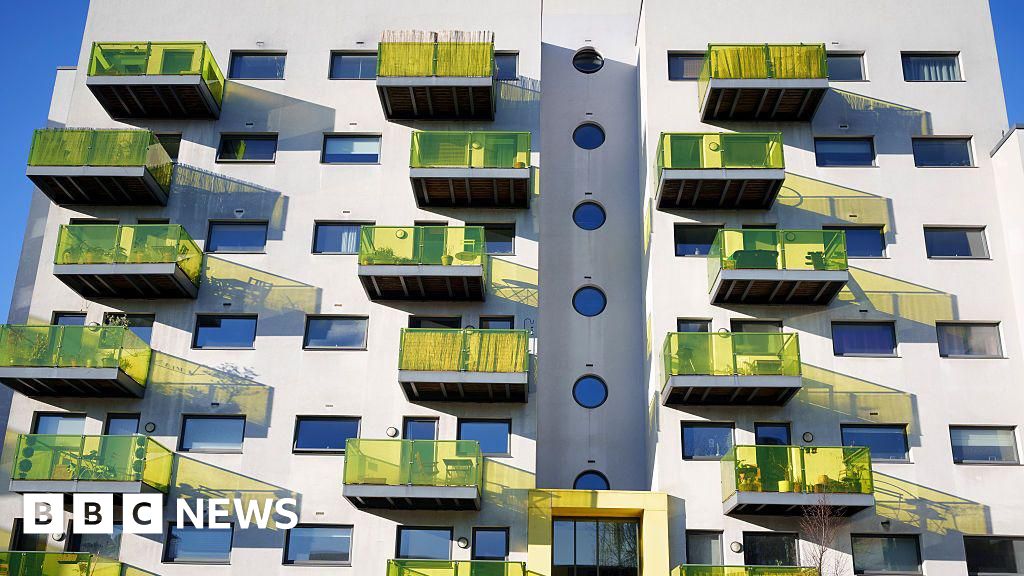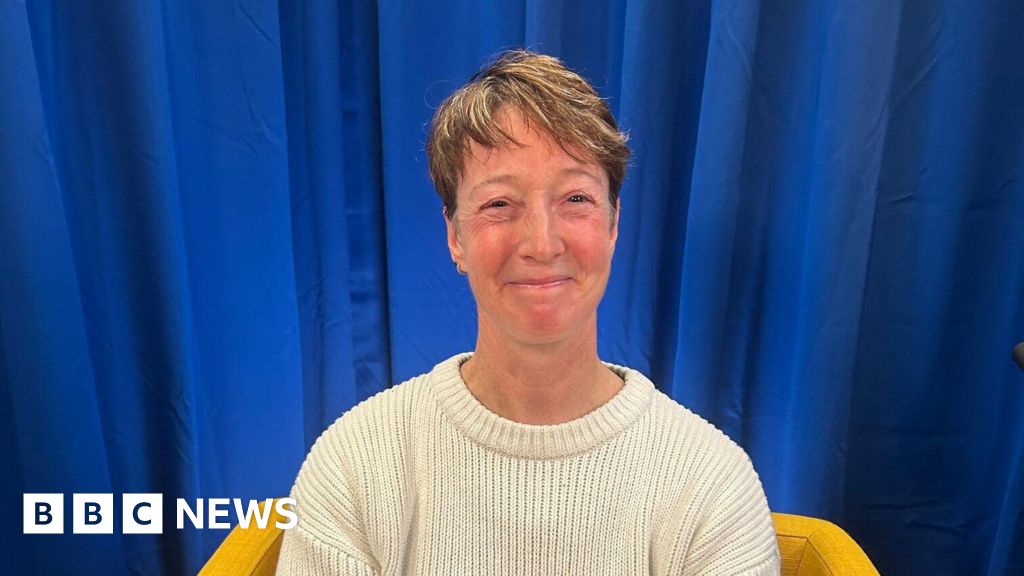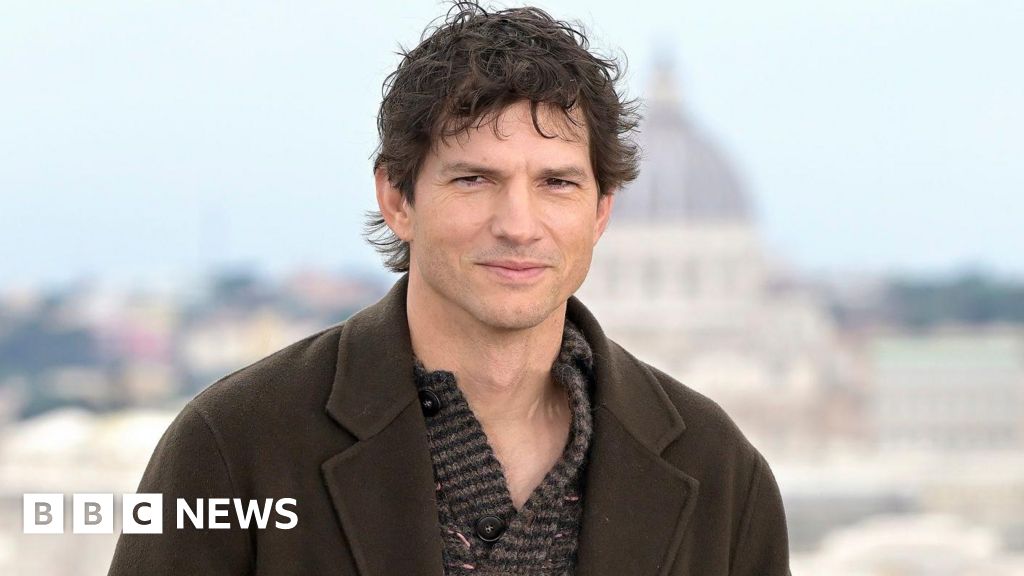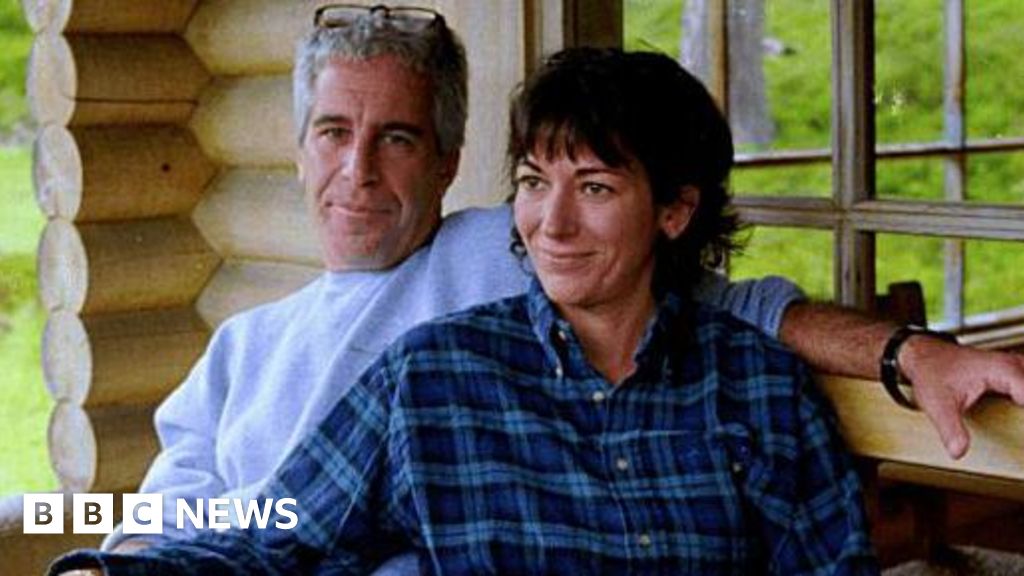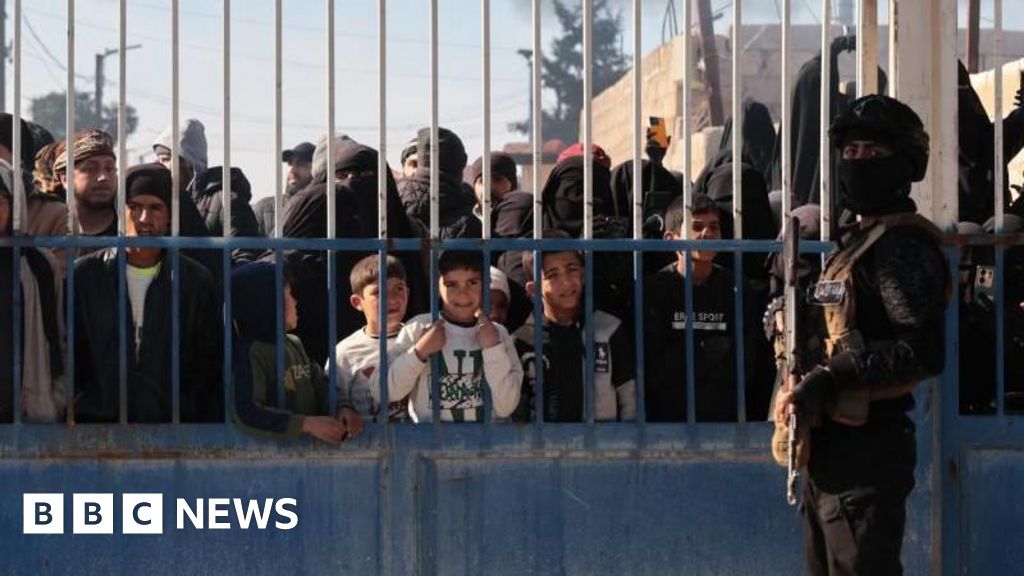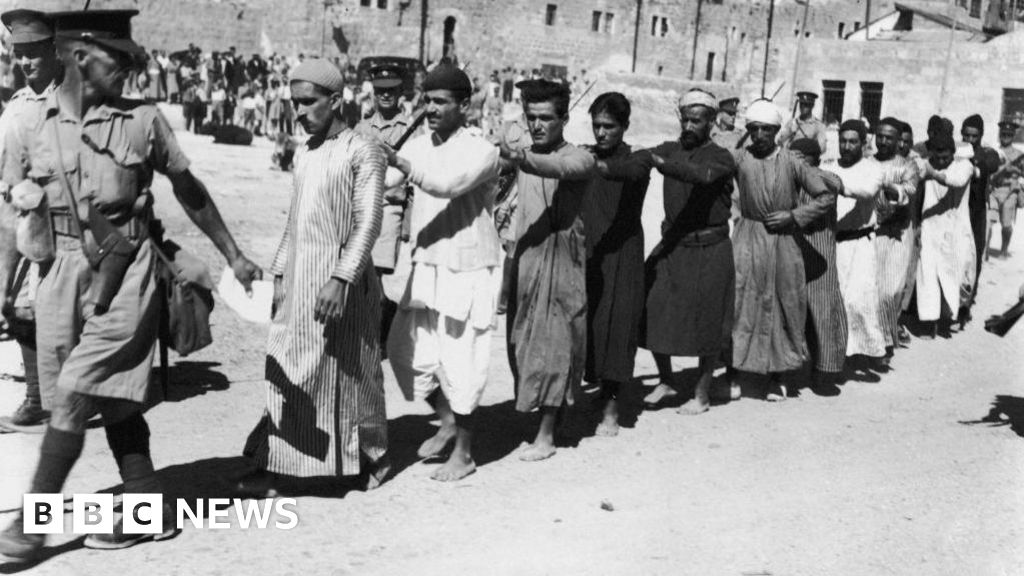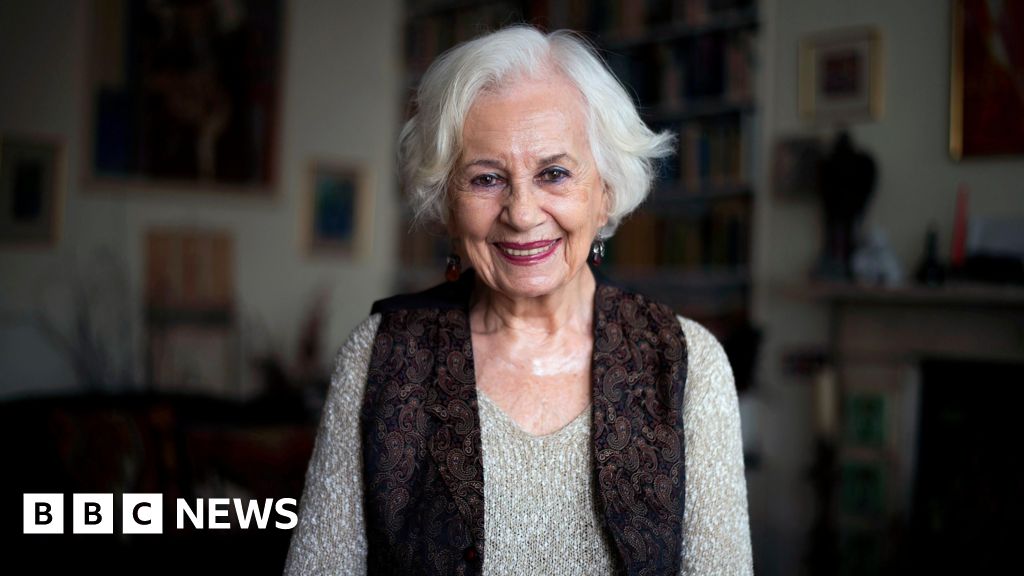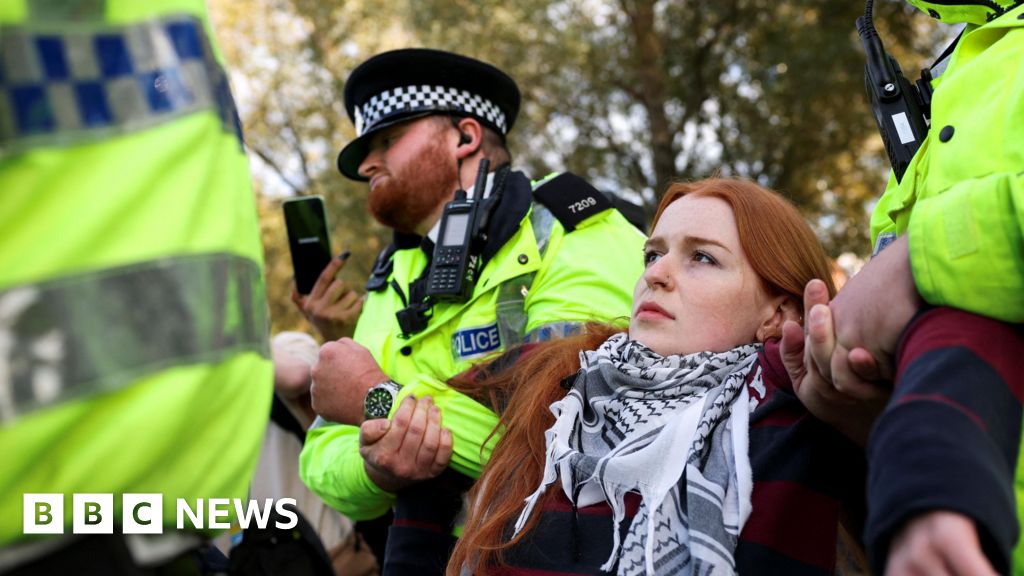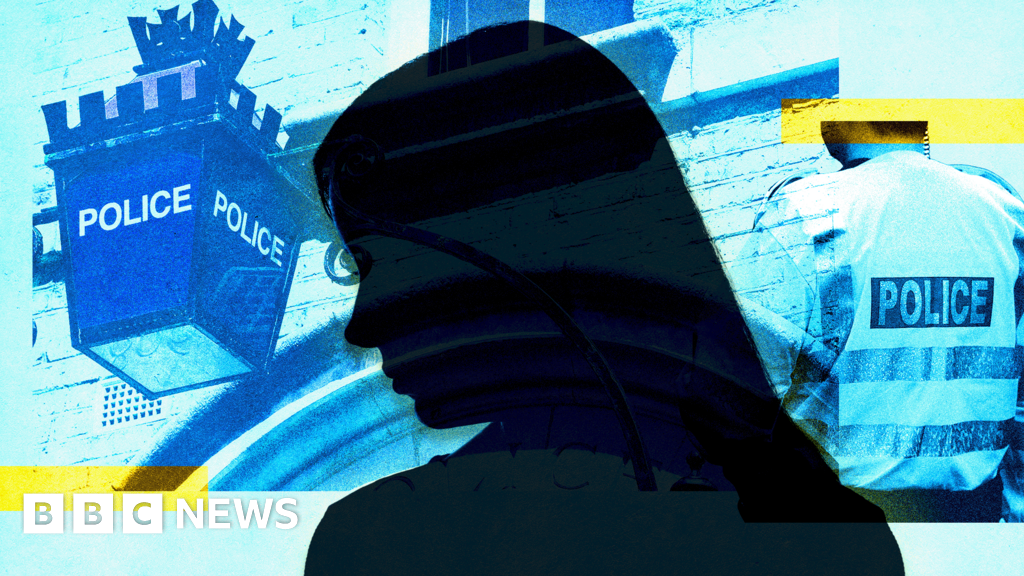Rushdi AbualoufGaza correspondent, reporting from Istanbul and Rachel HaganBBC News

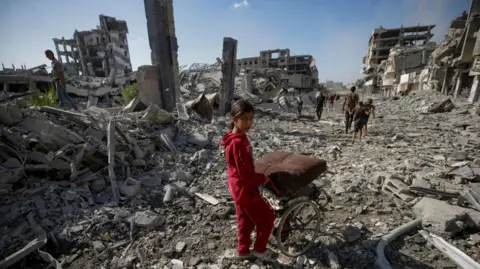 EPA
EPA
Parts of Gaza City have been largely destroyed
Thousands of Palestinians have begun returning from southern Gaza to Gaza City, weeks after fleeing the Israeli offensive that turned much of the city into rubble.
Footage showed large numbers walking north up damaged narrow coastal roads towards the collapsed towers and ruined buildings of the territory's biggest city.
The returnees, many travelling on foot for more than 20km, carried what remained of their belongings on their backs. Those who could afford it paid high prices to hire donkey carts or small trucks to make the arduous journey north.
Some waved Palestinian flags and flashed victory signs. But the prevailing mood was one of exhaustion. Many appeared weak and malnourished after months of displacement, hunger and fear.
"The road is long and difficult, there's no food or water," says Alaa Saleh, a schoolteacher who fled Gaza City with his wife and six children to Khan Younis.
"I left my family behind and started walking north. Thousands around me are struggling. Hiring a car costs around 4,000 shekels (£924; $1,227), far beyond what most people can afford."
Those returning say they are driven by desperation rather than confidence that it is safe. Many have already been told that their homes no longer exist.
Around 700,000 people from Gaza City and the north were displaced by the Israeli offensive, which saw intense aerial bombardment and the entry of troops into some neighbourhoods.

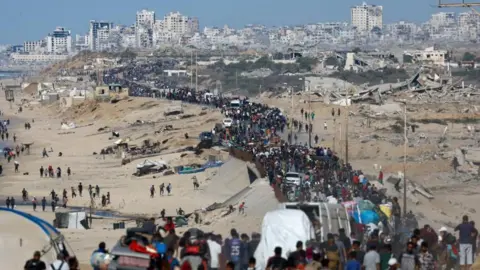 Reuters
Reuters
After they pulled back under the terms of the ceasefire and hostage release deal agreed between Israel and Hamas and approved by the Israeli government, residents in northern and western Gaza City were left stunned at the unprecedented devastation left behind.
For the first time in weeks, people entered the Sheikh Radwan, Karama and Beach Camp areas and found entire residential blocks flattened, hundreds of homes destroyed and much of the areas' infrastructure wiped out.
Dozens of videos on social media show residents walking through the rubble, filming what remains of their neighbourhoods. In one clip, a man says: "This is the last area we can reach. The Israeli army is still nearby. Look at the scale of destruction, they've destroyed everything."
Other videos show circulating show similar destruction in the Sabra and Zeitoun neighbourhoods to the south and east, where entire apartment blocks have been levelled.
As some filmed the ruins, others rushed to help Hamas's Gaza Civil Defense teams recover bodies from beneath the debris. Spokesman Mahmoud Basal told the BBC that eight bodies were pulled out from northern Gaza on Friday morning, as rescue teams continue searching "with very limited means" in other areas.

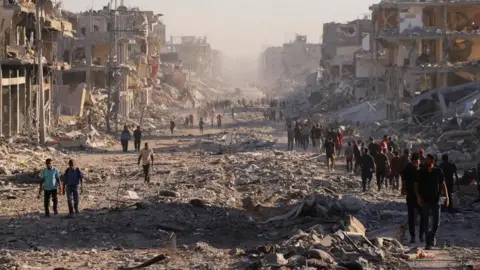 Reuters
Reuters
For the first time in weeks, people have entered areas only to find entire residential blocks flattened
After two years, the scale of contamination from unexploded ordnance (UXO) has yet to be fully determined, the Mines Advisory Group (MAG) said. UXO will be present in the rubble of destroyed buildings many people are returning to.
Despite the withdrawal of Israeli forces from several districts, access to many parts of Gaza City is still restricted.
Meanwhile the city's once-bustling seafront, where families gathered on summer evenings, has become a corridor of tents and broken concrete, the site of a mass migration through the ruins.
Fears persist that the fragile calm could be temporary, yet for Alaa Saleh, the schoolteacher, returning north felt like the only option.
"My house was destroyed a year ago. I was living in a tent on the ruins, and I will go back and pitch my tent again. We just want to rebuild. We're tired of living in tents that protect us from neither the heat of summer nor the cold of winter."
Wael Al-Najjar, who was returning to his home in Jabalia in the north, said he had been displaced three times since the war began.
As soon as news of the ceasefire deal broke, he got ready to return home.
"We are waiting, sitting by the crossing. My son and I slept here last night, on the pavement, in the cold, waiting to go back home," he told a BBC freelancer.
"Even if the house is destroyed, even if it's just rubble, we'll go back, put up a tent, and return to our people."
Additional reporting by Alice Cuddy

 3 months ago
85
3 months ago
85



